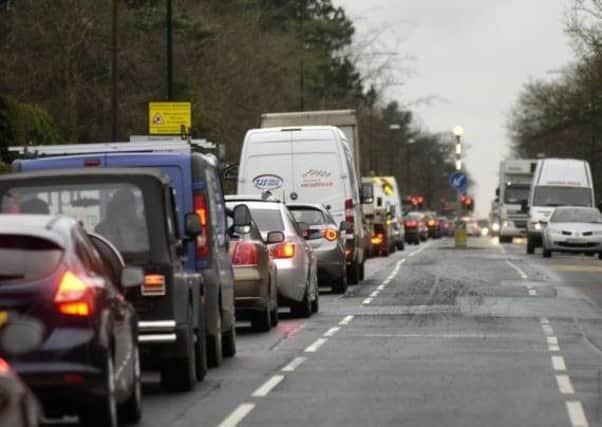YP Comment: Put the skids on this car tax


Even though clean air zones are due to be introduced in Leeds and four other cities by 2020 which will see the owners of the most polluting vehicles pay if they enter a designated area, the Environment, Food and Rural Affairs committee appears to be already pre-judging the outcome of this “trial” before it has even started.
It is clear, judging by the central thrust of this report’s recommendations, that the MPs are basing their views on London which was the world’s first major city to introduce a congestion charge. The capital could only do so because it was already blessed by a transport network which continues to receive unprecedented levels of public funding at the expense of the North.
Advertisement
Hide AdAdvertisement
Hide AdCompare and contrast London’s Tube network, as well as the unremitting frequency of its bus and overground rail services, with the day-to-day misery endured by commuters in Yorkshire’s towns and cities where the level of investment in public transport has simply not kept pace with the growth in the region’s population and increased awareness about the environment.
Put simply, the onus should be on politicians – nationally and locally – to ensure that this region’s road and rail infrastructure is fit for purpose. Unlike London, families in Yorkshire are far more dependent on the car for the daily commute, or the school run, because the public transport alternative – whether it be bus or train – is largely inadequate.
Until this changes, it will be impossible to justify the type of charges being advocated by those MPs who believe, erroneously, that motorists are solely to blame for high pollution levels. They’re not. The fault rests with all those politicians who have failed to invest sufficient money in public transport so the whole country can enjoy the level of service that can be taken for granted in London on a daily basis.
Shoddy service: Energy firms finally accountable
IT APPEARS that the energy regulator Ofgem is belatedly getting to grips with those energy suppliers who continue to betray their customers with shoddy service.
Advertisement
Hide AdAdvertisement
Hide AdThe £18m fine levied against ScottishPower is the third such sanction to be applied to one of the so-called “big six” energy suppliers and Ofgem believe that the imposition of such penalties is finally having the desired effect; namely an improved service when householders query bills or switch tariffs.
Yet this whole process remains unsatisfactory. These incidents date back to June 2013. It should not have taken three years to reach this point. And it is disingenuous of the company to blame computer software for this sorry state of affairs – it enjoys a privileged position and abdicated its responsibilities when it failed to test its hardware before applying it to the billing process.
Given that computer glitches were to blame for this fiasco, it remains to be seen whether the very same computers are capable of compensating the one million people who lodged complaints. They’re all entitled to a share of £15m, with the remaining £3m going to charity.
Perhaps the biggest regret is that Ofgem did not impose an even larger penalty so a special fund could be created to improve the insulation at the homes occupied by those pensioners at the greatest risk of hypothermia. It would also have reminded ScottishPower’s complacent executives, and also their contemporaries at rival firms, that their first duty is to society and not their over-inflated salaries which do not correlate with the service that they provide.
Lords of the manor: Rural economy in spotlight
Advertisement
Hide AdAdvertisement
Hide AdIT IS to the credit of Anne McIntosh, the former North Yorkshire MP and former chairman of the Environment Select Committee, that she will lead a debate on the rural economy in the House of Lords today.
Yet the rarity of such debates reflects badly on both Houses of Parliament. Even though agriculture is integral to the country’s economy, politicians continue to pay lip service to the needs of countryside communities. However, as the floods demonstrated, many challenges facing town and country alike are inextricably linked. It would be a helpful start if all MPs and peers recognised this more frequently rather than just at times of crisis.